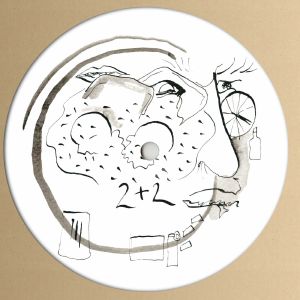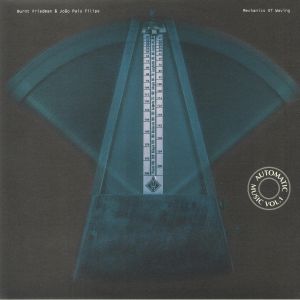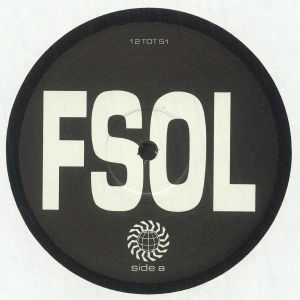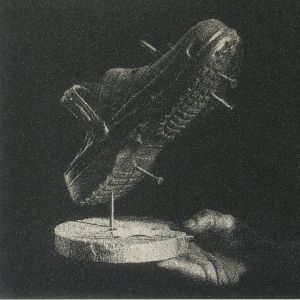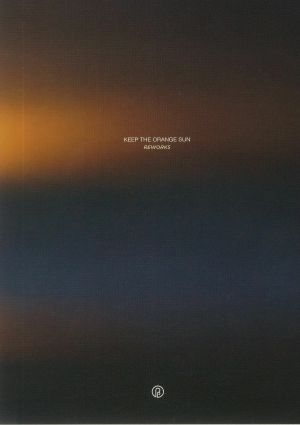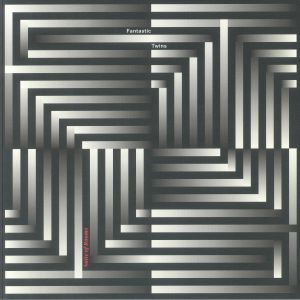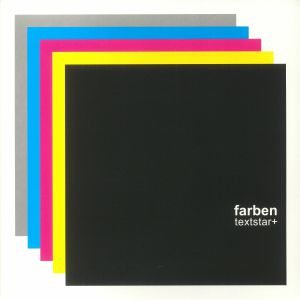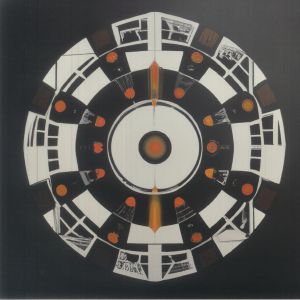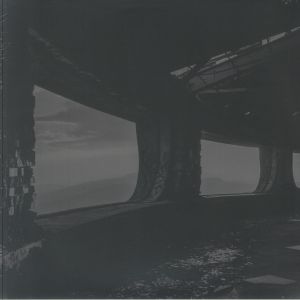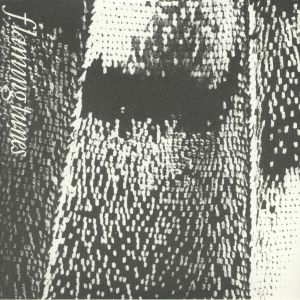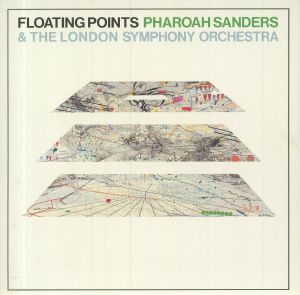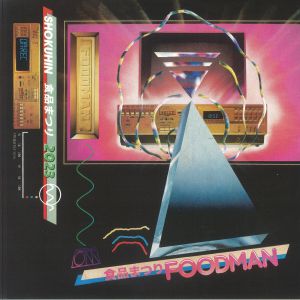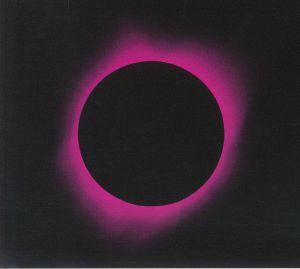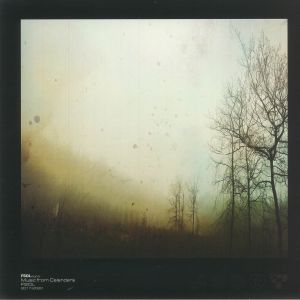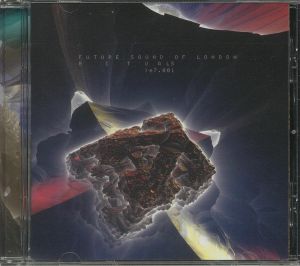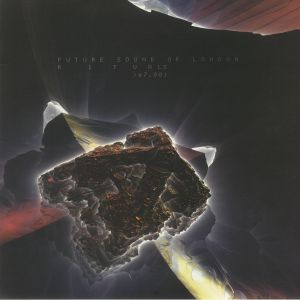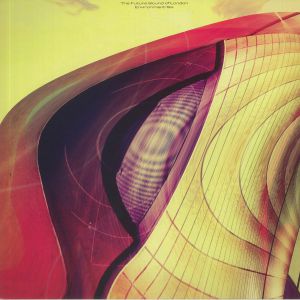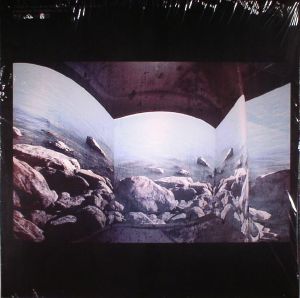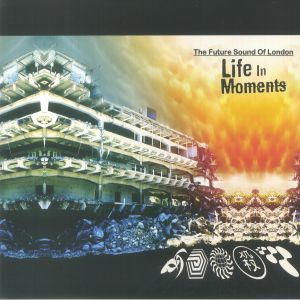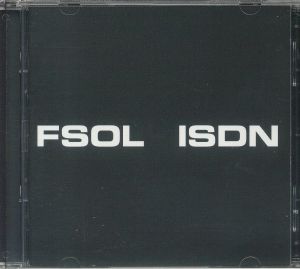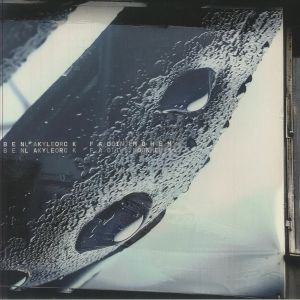Filter
在庫状況
アーティスト
Featured
リリースタイトル
値段
タグ
Back catalogue: Experimental/Electronic
Juno's full catalogue of Experimental/Electronic
シングル
Injury Time EP (140 gram vinyl 12" + insert + sticker)
Cat: WSR RF2. Rel: 16 Aug 21
Review: The first anyone heard from Robert Fleck was an early drop on Well Street back in 2018, and it's been quiet since then. Anyone following Well Street knows it's a hot tip for upfront artists in the fractured fissures of the UK underground, and Fleck makes a welcome return to prove the point. There's a lot of different touchstones you could point to on this release, from nimble-footed broken beat and a whiff of nu jazz orchestration, not to mention a bass music sensibility and an appreciation for deeper strains of UK techno. But more than all that, Fleck merges his unique spread of influences into something fresh and unique, comfortably slipping between conventional genre markings with the kind of flair we've come to expect from Well Street.
… Read more in stock $11.06
Cat: NONPLACE 053. Rel: 05 Jul 22
Review: Burnt Friedman and Joao Pais Filipe's collaborative efforts began back in 2018. The former using synthesis and electronics to paint subtly but incredibly specific aural pictures, the latter focusing on the drum and rhythmic end of things. At times their music feels entirely designed for the dancefloors of underground electronic clubs, in other moments it's something very different indeed.
This latest EP lives up to those broad brushstrokes. '21-30' is a lush, almost tropical sounding workout that offers a complex percussive pattern, and combines these with gentle shades of melody, harmony, hook and distorted note. '22-105' brings elements of glitchiness and robotics into the mix. Meanwhile, '18-140' would work well as a brooding building tool (or section) of a 'proper techno' mix, with '23-130' bridging gaps between the lot.
… Read moreThis latest EP lives up to those broad brushstrokes. '21-30' is a lush, almost tropical sounding workout that offers a complex percussive pattern, and combines these with gentle shades of melody, harmony, hook and distorted note. '22-105' brings elements of glitchiness and robotics into the mix. Meanwhile, '18-140' would work well as a brooding building tool (or section) of a 'proper techno' mix, with '23-130' bridging gaps between the lot.
in stock $20.48
Review: The first of two EPs leading up to The Future Sound of London's much anticipated 2025 album only serves to build anticipated cause they're as good as you would hope. Side A is a dark ambient odyssey that drifts through ethereal choirs into ritualistic rhythms before landing in a surreal suburban dreamscape. It's immersive, haunting and unpredictably brilliant. Side B begins with a more introspective tone but gradually shifts into unease with baroque minimalism with modular synths, breakbeats and drum machines coming totters with ambient field recordings and meticulously curated samples. It's as intricate as you would expect of this pair and is a masterclass in an atmosphere full of depth and surprise.
… Read more in stock $21.86
Crocs On The Plough (hand-stamped 7" limited to 200 copies)
Cat: NC 7007. Rel: 05 Dec 22
Review: The seventh in this series of 7" singles is by Bristol and Avon's Kinlaw and Franco Franco and it is a rare mix of sounds with R&B, Italian rap and twisted basslines all defining the tracks. 'Crocs On The Plough' is industrial and experimental in its production - earth-shattering bass, police sirens, and soot-black synths, but background chords bring light as the vocals are delivered with guttural rawness. On the flip, the OSVMVSM version slows things right down to a crawl and the distorted synths and crunchy textures take on even more otherworld character.
… Read more in stock $13.27
Cat: BL 006. Rel: 30 Nov 22
Review: Los Angeles-based The Black Lodge began as an intimate gathering place and ritual organised around exploring, sharing and experimenting with diverse forms of electronic music. This is the fourth collection of cuts from various artists of The Black Lodge multiverse. The Poetic Painter M, an alias of Nation chief Traxx, opens up the A-side with the dark late night acid of 'Elusive Clarity Of 1 Mind', followed by Pablo R Ruiz from Detroit providing the spooky lo-fi/sci-fi groove 'El Rey De Amor'. Over on the flip, Michigan's Fashion Flesh serves up a harsh experimental soundscape on 'Kisses' and closes with the tunnelling industrial funk of Fauna53's 'Jam1' (Asymmetrical weirdo orchestra edit).
… Read morePlayed by: ISOUL8 (Volcov)
in stock $27.39
アルバム
Keep The Orange Sun: Reworks (limited CD in longbox)
Cat: PITP V047C. Rel: 15 Oct 21
Review: Los Angeles based ambient husband and wife duo, awakened souls join with Reunion Island native, From Overseas to create Keep The Orange Sun. After hearing each other's individual music, a deeper conversation started about shared musical influences and inspiration leading to the creation of this album. Keep The Orange Sun guides the listener on a thoughtfully curated path. Starting with the certainty of life's changes (Certainty of Tides) to arising self-doubt (Release/Adapt) and celebrating immersion in the present moment as the gateway to deeper connection with nature and one's life (Keep The Orange Sun). The instrumentation present in each track channels elements of electronic, shoegaze & ambient with each artist's distinct musical fingerprint highlighted.
… Read more in stock $8.84
Berlin Atonal Vol 3 (gatefold 3xLP)
Cat: ATONAL 001. Rel: 26 Aug 15
Review: Berlin Atonal returned two years ago from a long hiatus, 23 years to be exact. After three tremendous festivals this decade, they now present us with their first recordings since 1984. These particular ones from the 2014 edition. Cabaret Voltaire (in this incarnation featuring only Richard H Kirk) was a true highlight and contributes "Microscopic Flesh Fragment" and "Universal Energy". One half of Demdike Stare Miles Whitaker went solo, presenting his truly unique take on techno, and the slow burning attitude of "Vagabond No. 7" is evidence of this. New Zealand's Fis also appears; rather uncategorisable as always on "Dist CL (Atonal Version)." On the third disc we have Northern Electronics main man and modern auteur Abdulla Rashim presenting two commissions from his captivating atmospheric set that year. Limited to 700 copies.
… Read morePlayed by: Juno Recommends Techno, Kastil (Soul Notes/Stale)
in stock $40.12
Suite Of Rooms (transparent red vinyl LP limited to 100 copies)
Cat: HOS 003. Rel: 13 Feb 25
Review: French musician Julienne Dessagne is behind Fantastic Twins and here presents a new album inspired by the Greek myth of Theseus and the Minotaur. Adapted from her composition for the dance piece Meandres, the record is a textural world of leftfield techno, kosmische influences and cinematic soundscapes across five tracks. Along the way, we're told the artist explores mythology and symbolism while drawing from opera, film scores and literary works. Her set up included modular synthesis and layered vocals which lend things a rather psychedelic edge next to the strikingly atmospheric synths and subtle sense of unpredictability.
… Read more in stock $22.12
Textstar Plus (remastered) (gatefold 2xLP + MP3 download code)
Cat: FAITBACK 12LP. Rel: 27 May 22
Review: Before his work became reduced to a fine slither and he shifted into experimental, concept-driven realms, Jan Jelinek dropped some of the finest early doors micro house as Farben. Originally released on Klang Elektronik and now reissued by Jelinek's own Faitiche label, Textstar is a masterpiece of glitchy sample-based electronics with a subtle, implied funk. In some ways the sound has dated - it's very much of the late 90s-early 00s era it was first crafted in. But it's a sound that still engrosses and intrigues, reveling in microscopic detail and subdued moods while retaining a groove that comes through the best on eternally magnificent cut 'Beautone'.
… Read morePlayed by: Joachim Spieth, Juno Recommends Techno
in stock $40.94
Review: It's absolutely mind-blowing that Faust released this in 1973. Well, if you know Faust then you know when they became active, and as such it's perfectly logical that they were putting records out when this was unveiled. However, the sounds it contains are so beyond the realms of what we associate with that age it's hard to understand how they ever conceived them.
Having said that, some tracks here are more 'normal'. For example the sweet acoustic folk-ish-ness of 'Flashback Caruso', or the strange, trippy jazz blues on 'Hermanns Lament'. But even these seem to have been born in a different world. Or parallel universe. Then you're given the cut and paste broken beat numbers like 'Don't!', and you realise just how ahead of its time this is.
… Read moreHaving said that, some tracks here are more 'normal'. For example the sweet acoustic folk-ish-ness of 'Flashback Caruso', or the strange, trippy jazz blues on 'Hermanns Lament'. But even these seem to have been born in a different world. Or parallel universe. Then you're given the cut and paste broken beat numbers like 'Don't!', and you realise just how ahead of its time this is.
Played by: Juno Recommends Experimental
in stock $29.32
Review: Berlin's Felix K has always made an art form of techno. His take on the genre is about space, weight and sound design as much as anything. He shows that on the Nullpunkt label with a double pack of expertly realised cuts. 'Sudbaism' is a dubby and cavernous opener with plenty of atmosphere to it then 'Noism' darts about the stereo field with jerking rhythms and snatched vocal yells underpinned by vast bass. Elsewhere there is plenty of moody menace to the empty underground caverns of 'Loss' while 'Life' is like being trapped in the middle of a factory production line in full flow. An evocative work, for sure.
… Read more in stock $39.56
Mind Games (remastered) (LP + insert)
Cat: SL 112. Rel: 23 Mar 22
Review: This reissued LP from 1984 follows Strangelove's previous issue of Sjunne Ferger's early singles and soundtrack work on Children's Mind. Restored and fully remastered from the original tapes, it comes with new liner notes and photography. A sonic snapshot of Scandinavia's early '80s electronic/progressive movements, Mindgames is a singular album with a Balearic outcome that showcases a lifetime of musical and personal exploration by the Orebro native. As a child jazz drummer prodigy, arts venue operator, music teacher and Aikido practitioner, a bewildering array of personal and creative influences are channeled into Ferger's only long player.
… Read more in stock $26.00
Musica De Baixa Fidelidade (reissue) (limited LP + insert)
Cat: ZAM 027LP. Rel: 21 Mar 25
Review: Holuzam reissues Toze Ferreira's groundbreaking 1988 sound art LP Musica de Baixa Fidelidade long after it has been heralded as a pivotal release in Portugal's experimental music scene. It was created during Ferreira's time at the Institute of Sonology and plays with musique concrete, noise and abstract sound across masterful compositions like 'More Adult Music' and 'This Is Music, As It Was Expected.' With elements of piano, bells, and processed voices, it creates a tactile, immersive experience that challenges conventional music structures. This first-ever vinyl reissue includes the original artwork and a new insert with remastering done by Taylor Deupree. Ferreira's blend of technical skill and emotional depth is mesmerising here.
… Read more in stock $20.48
I Am The Dirt Under Your Fingernails (reissue) (limited 2xLP)
Cat: FD2LP 142. Rel: 12 Dec 24
Review: This reissued album from Justin K. Broadrick follows the sold-out 2022 CD release from Fourth Dimension Records. Since 1983, Broadrick has worked under the Final moniker, evolving from power electronics to a more expansive yet still intense sound over the years. This record features nine tracks all named and numbered after the title and they delve into murky textures, crepuscular guitars, harsh noise and dissonant bursts. The relentless, unforgiving sound captures anger and despair and prove Broadrick's ability to transform early power electronics into contemporary, boundary-pushing forms with deeper emotional resonance.
… Read more in stock $24.62
Firnis Der Civilisation (LP + booklet limited to 300 copies)
Cat: FELT 007. Rel: 23 Apr 24
Review: "Tracks play out like beatless symphonies of wayward folk music who's basement transmissions have been intercepted from the ether; a stirring limbo of grotty emotions that inspire and conflict in equal measure. Portals into zones of sampladelic oddities, haunted vocals and scatty euphoria that is collectively driven by an (un)willingness to straddle familiar pastures." Firnis DC certainly paint a pretty vivid picture of their latest album, on which things are stripped back to the basics, allowing each individual element to breathe properly. This space really works, creating the sensation of endlessness in sound, and a depth of ideas that you can fall through, slowly descending into a world of strange post-rave ambience, looking up at fluffy clouds passing overhead the morning after that night before.
… Read morePlayed by: Bantam Lions, Juno Recommends Ambient/Drone
in stock $15.35
Monocoastal (10th Anniversary Edition) (gatefold clear vinyl LP + download code)
Cat: 12K 2050. Rel: 20 Nov 23
Review: You've always been able to hear the West Coast in Monocoastal, but it's particularly present when you shut your eyes after 12 months of lockdown stopping you from visiting the region. Less active L.A., and more observing in Oregon, Fischer's career didn't end with this in 2011 and the multi-disciplinary artist has produced great things since, but the album is certainly one of turning points in terms of reputation and note.
The idea of slowly watching time unfold in un-rushed places is also highly appropriate. Among the washes of tape and the waves of refrain that make up this beautiful, meditative outing, you'll hear takes and half-harmonies from found instruments including a piano and xylophone. Overall, it feels like a place removed from linearity. A liminal masterpiece, if you are that way inclined.
… Read moreThe idea of slowly watching time unfold in un-rushed places is also highly appropriate. Among the washes of tape and the waves of refrain that make up this beautiful, meditative outing, you'll hear takes and half-harmonies from found instruments including a piano and xylophone. Overall, it feels like a place removed from linearity. A liminal masterpiece, if you are that way inclined.
in stock $21.02
Review: Renowned composer Simon Fisher Turner's new album Instability of the Signal comes on limited edition black vinyl with extensive sleeve notes. It was produced with Francine Perry and across 13 tracks it delves into sound exploration inspired by Breda Beban, Hrvoje Horvatic, and poet Harold Pinter, whose works appear on the record. The artist integrates four elements: slivers, sounds, strings, and Singing where 'slivers" are brief audio snippets from Salford Electronics reimagined into track foundations. The album also features string arrangements by the Elysian Collective and overall the record reflects Fisher Turner's rich career as it blends experience with introspective soundscapes and personal expression.
… Read more in stock $24.90
Review: FKA Twigs' latest LP 'Caprisongs', widely known as her poptimist opus (contrasting to her earlier experiments) now gets a luminous vinyl pressing via Young. It does well to justify her reinvention after breaking up with a disgraced actor whose name we shan't name: the album is a colossal collaborative affair, and even come with a carnivalesque duet with pop king The Weeknd ('Tears In The Club'). The melodic abandon that follows is just as apt.
… Read more in stock $35.14
Review: Originally released in 1985 on cassette, this sel- titled record from Flaming Tunes was their only one. It's a cult home recording that came after collaborative time spent together by childhood friends Gareth Williams and Mary Currie and is influenced by Williams's time spent travelling India and studying classical Kathakali dance. The music was recorded in a house in South London and makes use of piano, bells, clarinets and percussive sounds that are layered up into simple arrangements. The lo-fi melodies, oblique rhythms and hypnotic qualities of it make it a gold standard for anyone who prides themselves on unearthing the more outlier albums out there.
… Read morePlayed by: Kaoru Inoue, Juno Recommends Experimental
in stock $24.62
Promises (CD)
Cat: LB 97CD. Rel: 26 Mar 21
Review: Over the years, Sam Shepheard's work as Floating Points has become increasingly ambitious, moving further away from his dancefloor roots and closer to spiritual jazz, new age and neo-classical. Even so, it was still a surprise when Shepheard announced Promises, a 46-minute piece in 10 "movements" featuring the London Symphony Orchestra and legendary saxophonist Pharoah Sanders. It's an undeniably remarkable piece all told; a constantly evolving fusion of neo-classical ambience, spiritual jazz and starry, synthesizer-laden soundscapes notable not only for Sanders' sublime sax-playing and Shepheard's memorable melodic themes, but also the intricate, detailed nature of the musical arrangements. It's a stunningly beautiful and life-affirming piece all told, and one that deserves your full attention.
… Read more in stock $13.84
Review: Foodman is now well known for his left-of-centre sounds having toured the world plenty of times. Back when his debut album arrived in 2012 though he was barely known at all. It came on Orange Milk and was a wonky fusion leftfield experimentation and beat music inspired by Chicago juke. It came back then on cassette only but now the same label has pressed it up to vinyl and that means it is sure to become a cult classic all over again. The often sorts, sketchy tracks are full of wonderful ideas, a lot of MIDI sounds, bizarre designs and great use of negative space.
… Read more in stock $22.12
Review: Ryan James Ford returns to Clone with an album that was written in his new home of Berlin, but that is inspired by his life growing up in Canada. It is full of the sot of rave sounds he heard back then and distil some of the atmospheres of the places he visited and experiences he had, from swimming in cold rivers to exploring supposedly haunting areas and of course being lost int he rave. It is a visceral 14 track affair that combines electors techno, IDM and ambient in complex and rewarding fashion.
… Read more in stock $29.05
Review: While Ben Frost's work has long been marked out by deft-touch dark ambient, experimental instincts and clandestine aural textures, he's always thrown in surprise excursions and drawn on musical inspirations that other like-minded producers would fear to embrace. This latter characteristic comes to the fore on Scope Neglect, his first solo set for six years. Remarkably, it utilises the moodiness, weight and ten-ton guitar licks of metal - played by Car Bombs guitarist Greg Kubacki and bass-slinger Liam Andrews of My Disco fame - as a starting point. Frost naturally puts these through the sonic wringer, combining them with his own skittish, IDM-influenced beats, dark ambient soundscapes and razor-sharp electronics. The results are unusual, impressive and emphatically enjoyable, sitting somewhere between timeless electronica, Nine Inch Nails and experimental metal.
… Read more in stock $11.06
Review: Music From Calendars is the on going project Future Sound of London have been helming since 2017. It sees them serve up new digital tracks each month and home put them out as an album at the end of the year. This time out the crew pick some of their best tunes from the last four years and put them together in a seamless mix over the course of 50 minutes. Their sound is a perfect fit for the format - all sleek ambient, gently lilting electronic grooves and sci-fi moods that drift by like zephyrs.
… Read morePlayed by: Juno Recommends Experimental
in stock $19.91
Review: The Future Sound of London keep their fans busy with a steady dispatch of music via the fsoldigital.com label, but it feels like there's a sense of occasion around this new album. Rituals E7.001 is purportedly the first part in a trilogy, and it already highly prized by the devoted followers of Brian Dougans and Garry Cobain's music. It's not hard to hear why on listening to the gorgeous strains of 'Hopiate', which harks back to some of the duo's most iconic music (we'll let you guess which one we mean). FSOL have always had a particular touch in their exploration of electronica, ambient and outernational sounds, and it sounds rich with inspiration on this new, expansive album.
… Read more in stock $14.38
Rituals E7.001 (Record Store Day RSD 2022) (limited numbered LP)
Cat: LPRSDTOT 84. Rel: 03 May 22
Review: Tracing The Future Sound of London's back catalogue right back to 1988, when 'Stakker Humanoid' blew minds with a blueprint that would go on to define the standard formulas for British electro and breakbeat before either had been drawn, you quickly realise the journey back to where we are today involves passing landmark after landmark. It's hard not to consider Rituals as another. Marking a return of the outfit's Environments series, which already had six innovative instalments preceding this, hit play on opening number 'Hopiate' and you're immediately transported to every great morning after a night of amazing hedonism before. Pretty, reflective refrains and warm, Earthly details parting for a moment of silence before unifying rolling drums kick in - soundtrack to the best rave at 9AM you've either been to or not. Cue another 12 tracks that are equally transportive and explain so much about why, decades after these tones first hypnotised youth, we're still lining up for more.
… Read more in stock $14.66
Review: While the mythical The Future Sound Of London duo are usually associated with the late 80s and early 90s wave of techno and acid house, they two producers haven't exactly been quiet over the last five years. Their original material is what made them famous, larger than life personalities within the electronic music world but, over the last five years, their Environment series have taken developed - and even matured - their style significantly. That's because they're free to experiment here, just as they did back in the golden years of club music, except that they're now doing this without the restriction of 4/4 patterns, Roland drum machines of acid baselines. The sixth volume of Environment is is a work of beauty, an all-out journey into the deepest reaches of electronica, downtempo, and and drone. Seen through the lens of two veritable pioneers of modern, experimental music. Don't miss it.
… Read morePlayed by: DoubtingThomas
in stock $27.12
Review: Since the mid 2000s, veteran ambient duo Future Sound of London has been doing their own thing, occasionally dropping a new installment in their Environments series of albums. This edition - 6.5 - is their second of the year, and continues the pair's tradition of blending trippy elements to create soundscapes that veer from creepy iciness (the melancholic "Some Degree of Sanctuary"), to mystical ambient dub ("Something Approaching Happiness"), via deep space explorations ("Amplification of Intelligence"), and electronic psychedelia ("Halodule"). While they've arguably sanded down their rougher and weirder edges over the years, FSOL are still capable of crafting distinctive downtempo music that's as hallucinogenic as it comes.
… Read more in stock $17.16
Review: Legend has it that around 1997, The Future Sound of London decided to make an album that combined the electronic and broken trance-inducing acid the outfit were already renowned for, and progressive rock. As work continued, a decision was made to go full psyche rock, and the result was The Isness by The Amorphous Androgynous. Had the original idea come to fruition, the hybrid sounds therein might be similar to Life In Moments. Originally released in 2015, this record is one of those very special instances in which you're presented with something that genuinely sounds new. Of course, there's plenty owed, too, with moments definitely nodding to the likes of Sabres of Paradise, slow mo dark room chug and other leftfield dance. On the whole, though, the combination of late night jazz, otherworldly electronica, tripped-out space rock, ambient and movie-esque scores is pretty incomparable.
… Read more in stock $27.12
Cat: 587335 7. Rel: 19 Apr 24
Review: Something of ground-breaking album on its initial release in December 1994, ISDN is one of Future Sound of London's most name-checked sets. It's effectively a re-edited and rearranged collection of live recordings - jammed out tracks that were initially broadcast to the world via ISDN links to clubs and radio stations, which FSOL brilliantly moulded into a mind-mangling journey through IDM, trip-hop, proto-big beat, dub, ambient, found sounds, field recordings and wayward electronica. To celebrate the album's 30th birthday, it returns as a two-disc set, freshly 'amalgamated and re-sequenced' by FSOL to include material from both previous editions of the album. It is, then, a kind of 'definitive version' of the LP, and one that still sounds as joyously weird, trippy and psychedelic as it did first time around.
… Read more in stock $26.28
Review: Layer is the new label from Berlin techno favourite Berghain for the music released by its residents. Ben Klock is one of the most celebrated of those and here he links up with Fadi Mohem for an album that eschews his famous techno sounds in favour of a new blend of IDM, ambient and experimental sounds. 'Layer One' comes on double vinyl and opens with 'Ultimate (feat Coby Set)' which is an atmospheric opener with icy synths and sparse landscapes, then 'Escape Valley' explores kinetic rhythms and glitchy synths, 'The Vanishing' is another exploration of a distant corner of the cosmos and 'The Machine' brings more cinematic and evocative electronic designs.
… Read more in stock $34.58

 USD
USD





